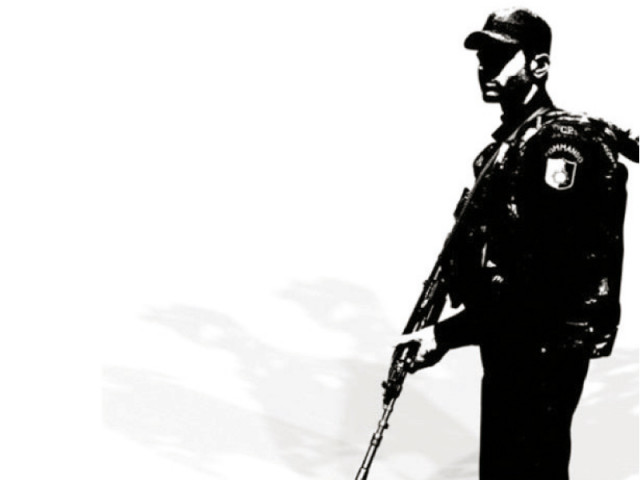Tackling emerging threats: ‘Private security agencies are the second line of defence’
APSAA chairperson says 250,000 private guards are deployed at vital installations.

Security 2000 CEO Brigadier (retd) Rashid Ali Malik, however, took on the question, claiming that the families of guards were immediately given Rs500,000 as compensation in case of any mishap. STOCK IMAGE
This was said by security expert Major (retd) Munir Ahmed, the chairperson of the All Pakistan Security Agencies Association, at a conference on emerging security threats and counterterrorism strategies at the Movenpick hotel on Tuesday.
According to Ahmed, a public-private partnership was necessary to devise a policy against the deep-rooted militancy in Pakistan. “Effective policing and intelligence deliver better results against terrorism than military operations,” he asserted. “However, this cannot be attained unless the authorities take all the stakeholders on-board.”
He said that private security agencies were ready to cooperate with the law enforcement agencies in maintaining law and order but the authorities did not seem interested in this. “We have become the government’s main security partner but there is still no centralised regulatory authority for us.”
Discussing the reputation of private security companies, Ahmed said that guards were only recruited after thorough investigation and were trained before being deployed. He further claimed that AIG Ghulam Qadir Thebo had confirmed to him that no security guards were involved in any of the 23 bank robberies that occurred in 2014.
When asked about the guards’ low wages, long working hours and life insurance, he had no satisfactory answer. “Clients expect guards who are trained as well as military personnel while paying only Rs13,000,” he explained. “Most of the guards are insured but not all since we have to consider the business aspect of it and cannot pay out of our own pockets.”
Security 2000 CEO Brigadier (retd) Rashid Ali Malik, however, took on the question, claiming that the families of guards were immediately given Rs500,000 as compensation in case of any mishap.
“Private security agencies have become a recognised institution all over the world, outnumbering law enforcement personnel,” he said. “In the UK, the security of some towns and prisons has been outsourced to private security companies.”
Malik claimed that a third of Pakistan’s military personnel were deployed at the Pak-Afghan border, asserting that India was benefiting from the deteriorating peace in the country.
Sardar Shaukat Popalzai, the CEO of Security Monitoring Unit, believed that the security agencies of Pakistan and India were engaged in an undeclared war and the situation was getting worse in South Asia. He added that terrorism was the largest challenge to the government and an effective counter-terrorism policy was needed.
Talking about Balochistan, he said that 55 of the 65 MPAs of the insurgency-hit province were tribal elders who spent most of their time in the Gulf states. “When I asked some of them why they did not intervene in the conflict, they told me that they did not want the combatants to turn against them.”
The six-hour conference included presentations on inter-agency collaboration, crisis management, security technologies, security simulators and countering money-laundering.
Published in The Express Tribune, February 12th, 2015.



















COMMENTS
Comments are moderated and generally will be posted if they are on-topic and not abusive.
For more information, please see our Comments FAQ